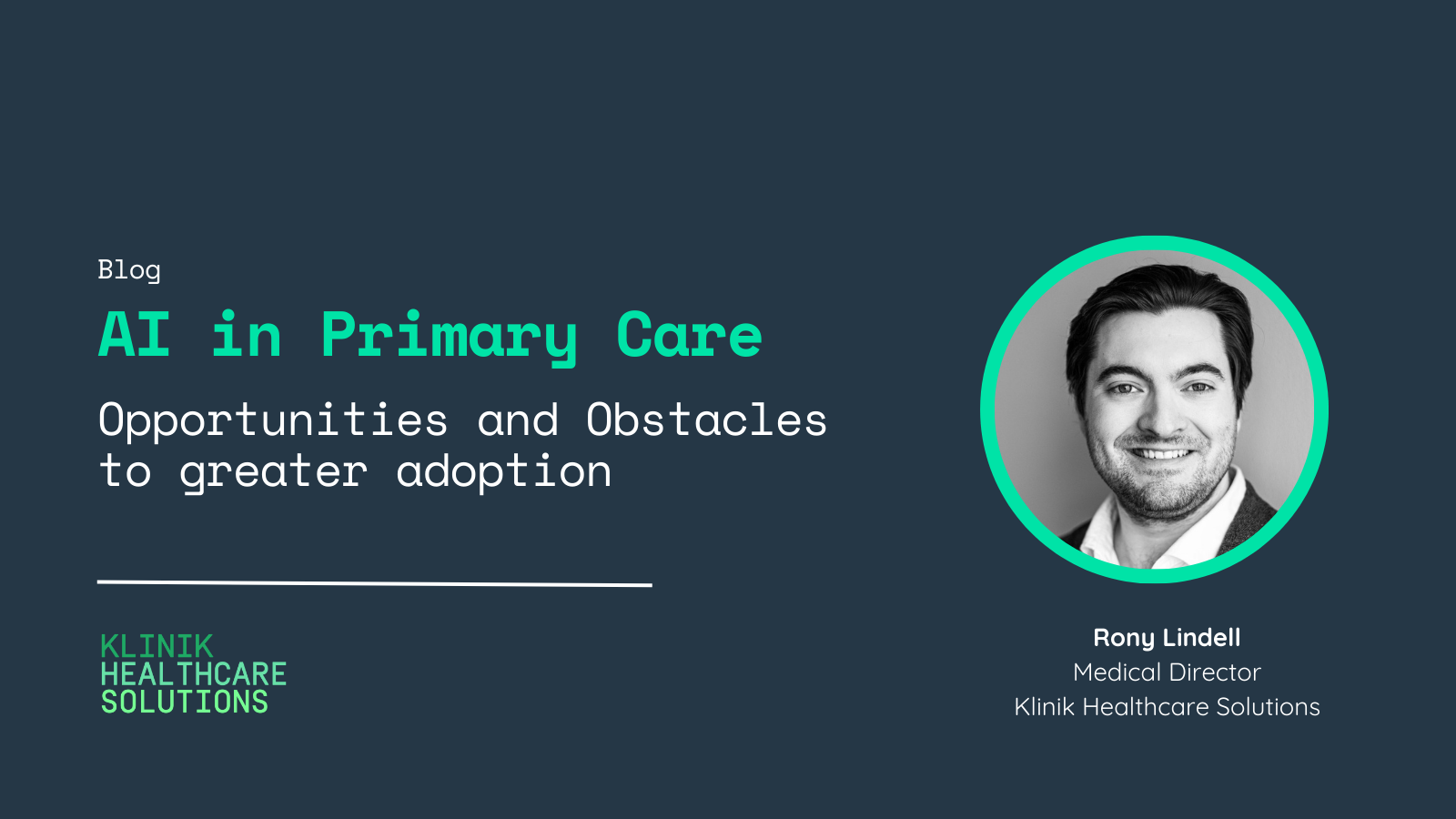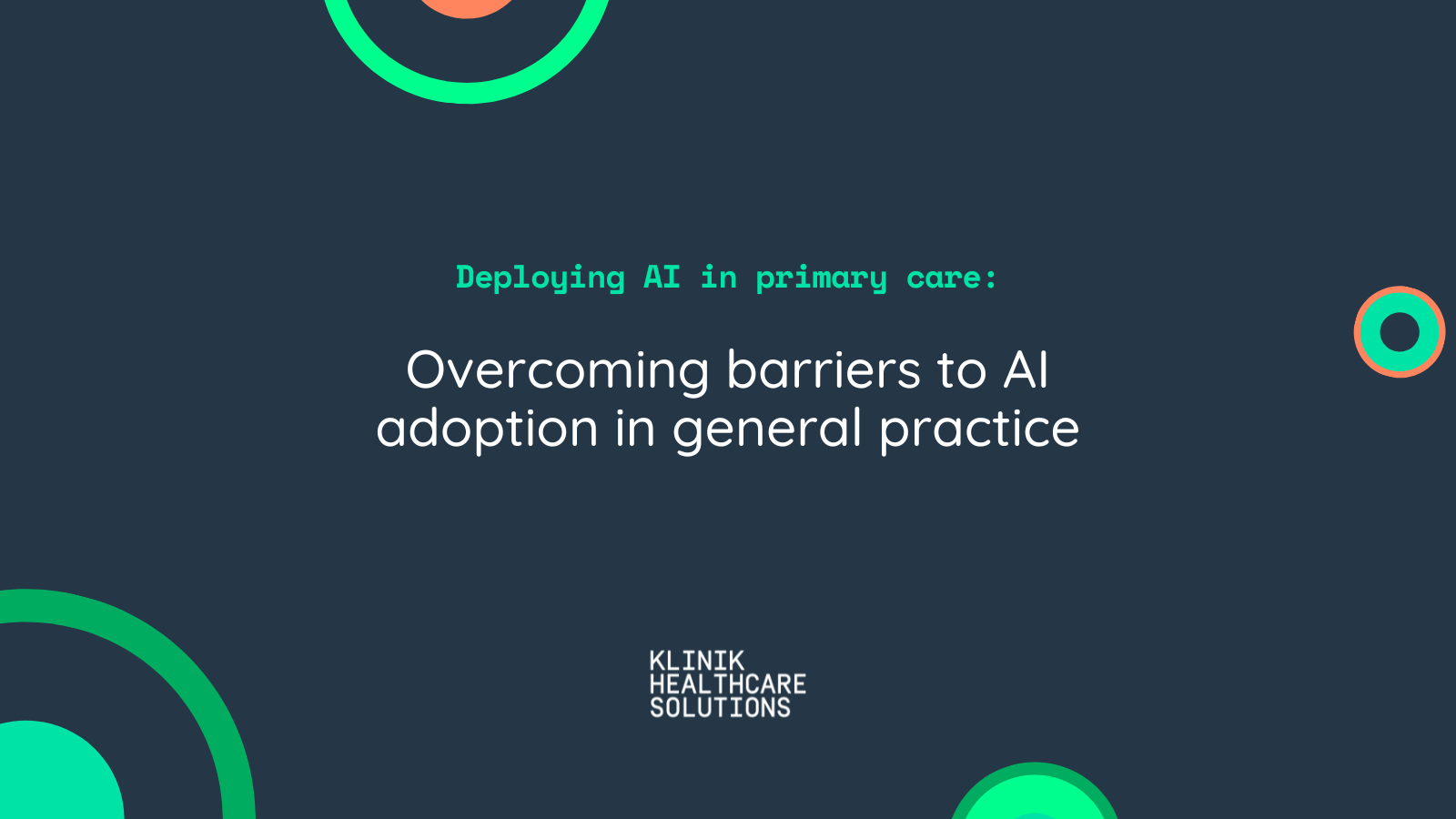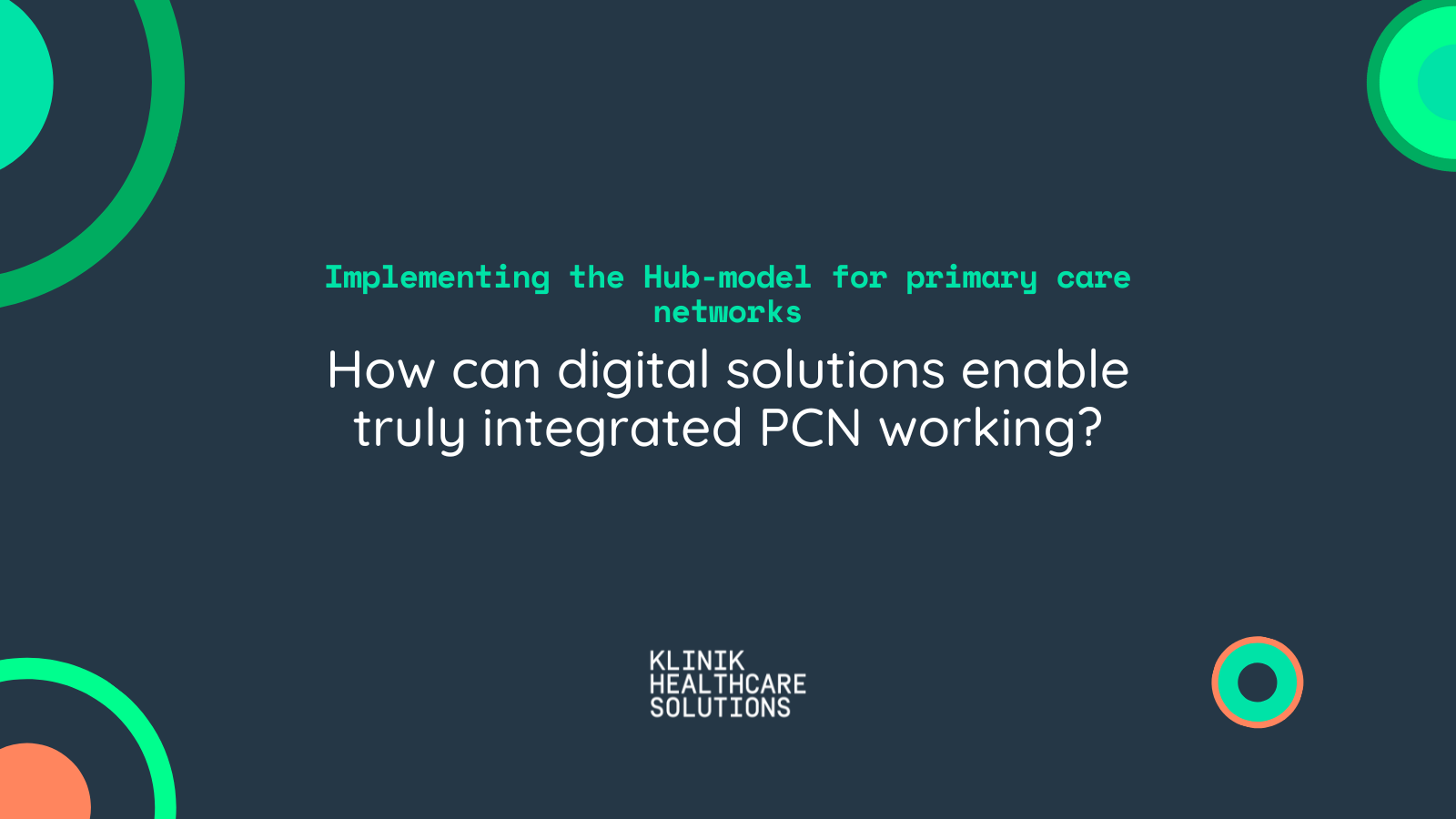AI in Primary Care: Opportunities and Obstacles to great adoption

AI in Primary Care: Opportunities and Obstacles to great adoption
Rony Lindell, Medical Director, Klinik
As pressure on primary care mounts, artificial intelligence (AI) has emerged as a valuable resource to alleviate patient demand and improve outcomes.
The technology is being appraised for use in secondary care fields like radiology, and now there is growing interest in its use and potential within primary care.
AI in primary care presents numerous benefits, but, as with all innovations, challenges exist.
In a recent webinar, I was fortunate enough to be joined by experts in primary care and the use of technology in healthcare to discuss the practical challenges of integrating AI in primary care. I’ve put together a few key reflections below.
Skills and confidence in the use of AI
In today's rapidly evolving technological landscape, one key aspect often overlooked is the importance of creating the right environment for the successful integration of AI. Adoption of an AI solution is unlikely to be a simple drag and drop into existing processes, and so the design of new processes and optimisation of existing systems is an essential skill for teams looking to take advantage of AI in healthcare.
Primary care organisations that have yet to embrace AI may find themselves feeling overwhelmed and pressured to catch up. However, it is crucial for companies to understand that simply introducing AI is not enough.
Companies need to understand pain points, develop bespoke solutions, and then provide education and training opportunities for healthcare professionals to help ensure they have the necessary skills and confidence to embrace AI.
As my fellow panellist, Martin Eades, a GP Partner at Priory Medical Group reflected during the webinar: “I'm demanding… I come from investment banking, I expect people to develop solutions that meet my needs rather than going and buying stuff off the shelf.”
Overcoming the ‘fear factor’ around AI in primary care
Engaging patients and healthcare staff in the digital transformation process is essential for successful AI adoption across primary care. Ultimately, AI needs to be seen as an assistive tool that automates administrative processes, rather than a replacement for clinical teams.
In the fast-paced realm of healthcare, doctors under pressure must have confidence that AI solutions seamlessly fit into their workflows. Amid the constant influx of discussions about AI and its wide-ranging applications (from chatbots to machine learning algorithms), the mere mention of AI and its potential benefits can feel overwhelming for busy clinicians. This sense of overwhelm can be compounded by a limited knowledge of available AI solutions and a fear of the unknown.
Guarnak Dosanjh, a GP from Leceister said in the webinar that the “fear factor” around AI needs to be addressed.
“We really have to change the culture, and shift that culture and that narrative towards entertaining the fact that actually, artificial intelligence can be a supportive enabler in a lot of the things that we do.” Dosanj, who is also an ICB clinical lead looking at home first and emergency pathways, said.
Meanwhile, Martin said that primary care has witnessed limited examples of AI implementation compared to secondary care, in part due to health tech companies' hesitation caused by inadequate returns on investment when selling to primary care.
It is essential to showcase the benefits and costs of AI solutions transparently and provide evidence-based case studies to overcome those barriers.
How AI can support clinical decision making and enhance patient access
The purpose of using AI in primary care is to ensure that the right patient receives the right care in a timely manner, allowing clinical teams to focus on delivering appropriate treatments.
One key area where AI is making a significant impact is in triage and patient streamlining. AI-assisted triage systems enable healthcare providers to efficiently and accurately assess patients' conditions and prioritise their needs.
By analysing patient data and symptoms, these systems can provide valuable insights to care teams, helping them make informed decisions and allocate resources effectively. This not only streamlines the triage process but also ensures that patients receive timely care based on their individual needs.
AI in primary care is also instrumental in helping care teams meet access requirements and assure quality healthcare delivery. With the use of AI-powered virtual assistants and chatbots, patients can access basic medical advice, schedule appointments, and receive guidance on self-care practices. This technology bridges the gap between patients and healthcare providers, especially for individuals who may face barriers to accessing in-person care. It also alleviates the burden on primary care providers, allowing them to focus on complex cases while AI handles routine inquiries.
By leveraging AI, primary care practices can optimise administrative tasks, automate processes like letter coding and note-taking, and improve overall efficiency. Smart systems powered by AI can read and code letters from hospital trusts, freeing up resources for higher-value activities.
Conclusion
At Klinik, our innovative triage hub model and enhanced patient history-taking exemplify the potential of AI in supporting clinical decision-making in primary care.
The AI-powered triage system helps prioritise patients based on urgency, streamlining the process and allowing clinicians to focus on those requiring immediate attention.
Catch up on last week's webinar to hear more about the practical benefits of Klinik's solutions and the challenges we’re overcoming.








